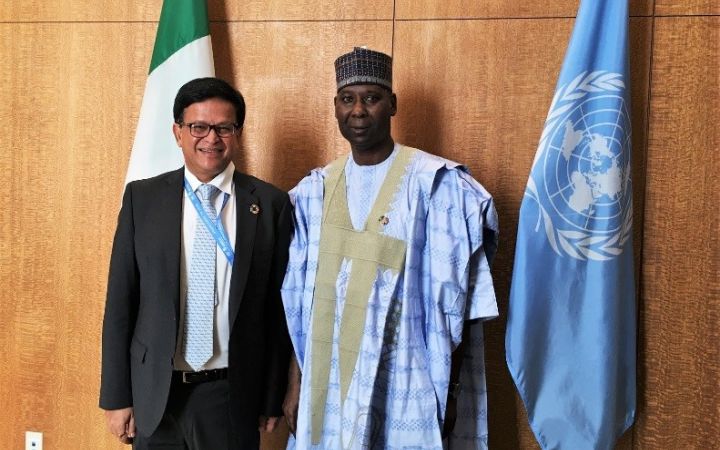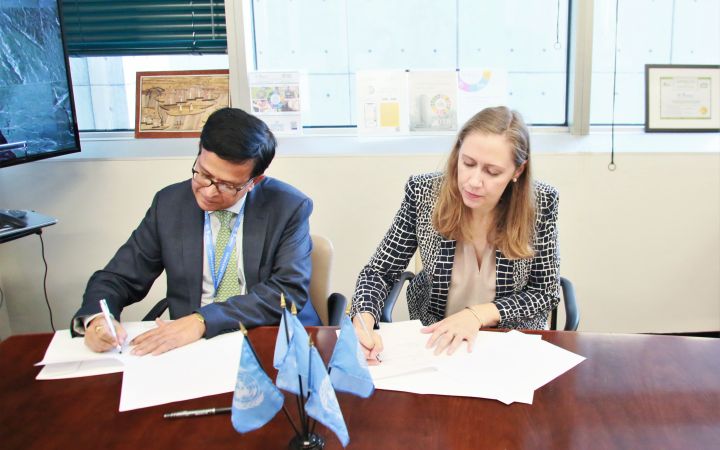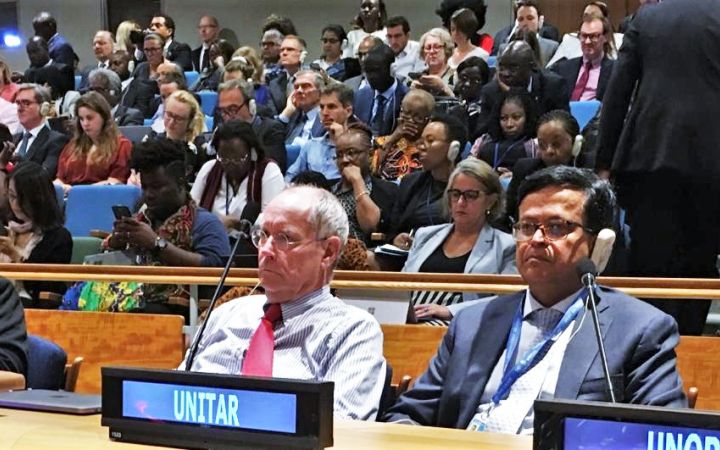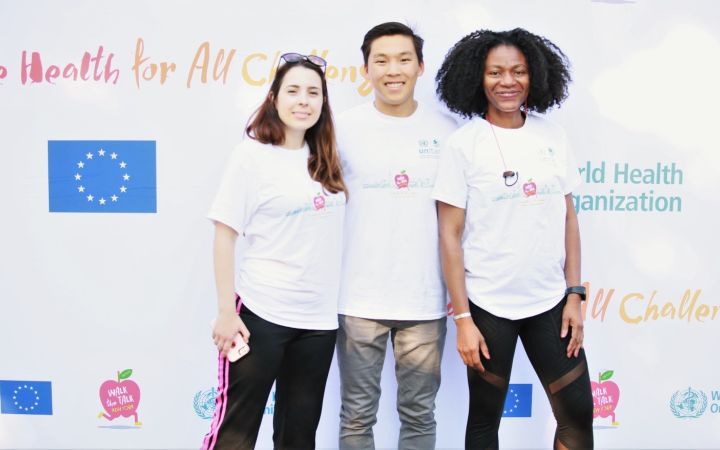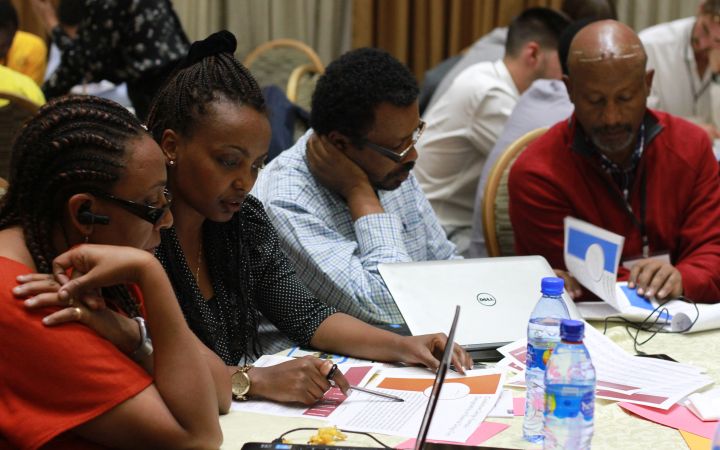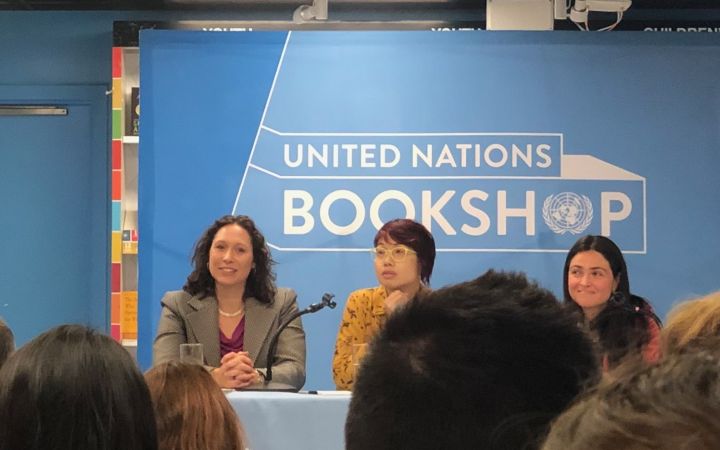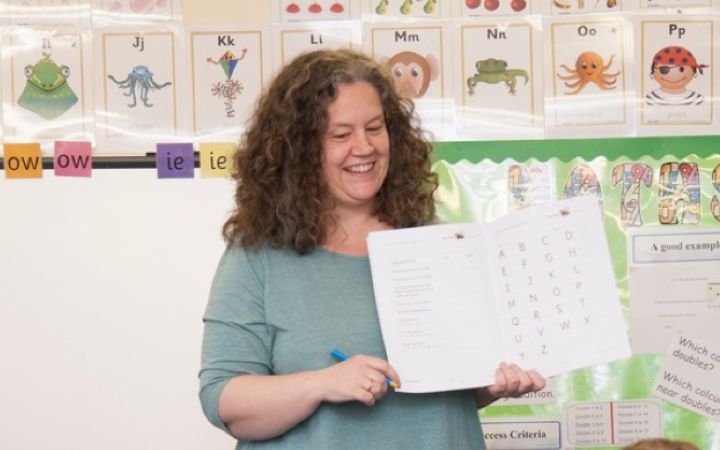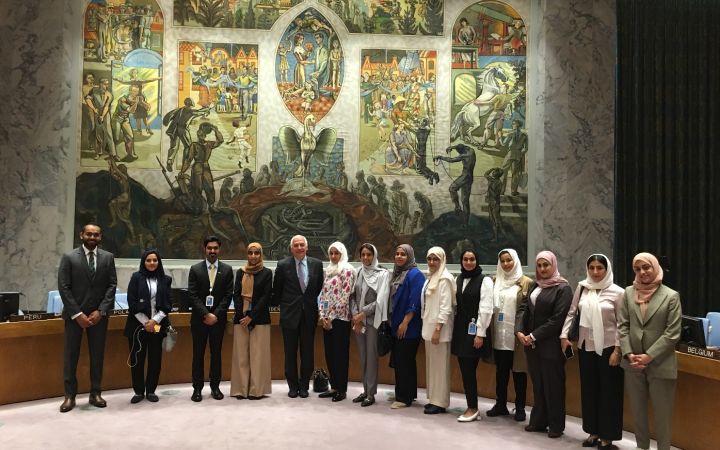Displaying 1381 - 1390 of 1730
25 September 2019, New York, USA – The Assistant Secretary-General (ASG), Executive Director of United Nations Institute for Training and Research (UNITAR), Mr. Nikhil Seth was received by the President of the 74th United Nations General Assembly (PGA), His Excellency, Prof. Tijjani Muhammad-Bande at the PGA’s office in the United Nations Secretariat, New York.
24 September 2019, New York, USA – The United Nations Institute for Training and Research (UNITAR) signed a Memorandum of Understanding (MOU) with Women Forward International (WFI) at the UNITAR New York Office to collaborate on new training courses for women.
23 September 2019, New York, USA – The United Nations Institute for Training and Research (UNITAR) ASG, Executive Director Mr. Nikhil Seth attended the UN High-Level Meetings (UN HLM) on Universal Health Coverage (UHC) during the 74th United Nations General Assembly which was held at Trusteeship Council on Monday morning.
22 September 2019, New York, USA – The United Nations Institute for Training and Research (UNITAR) New York Office participated in the World Health Organization (WHO) event, ‘Walk the Talk – The Health for All Challenge’ at Central Park, New York City ahead of the 74th session of the United Nations General Assembly. It brought together thousands of New Yorkers and visitors from around the world who took part in several events including the highlight activity, a 4-mile walk around Central Park.
21 September 2019, Koge, Japan - 21 September 2019 was the International Day of Peace. On this day, at the geographical mid-point between Hiroshima and Nagasaki a special planting ceremony took place under the leadership of Mr. Akio Nishikiori - an A-Bomb survivor, long-time GLH Committee member as well as a dedicated architect for Hiroshima's revival. This project, to plant A-Bomb saplings from both Nagasaki and Hiroshima respectively on the two sides of the lake in Oike Park of Koge Town, Fukuoka Prefecture, was initiated last year. A bridge is also planned to be built across the lake connecting the Nagasaki and Hiroshima sites.
Together with our partners the Clean Cooking Alliance, UNITAR’s Humanitarian Energy team hosted the first ever gathering of practitioners dedicated to improving and expanding access to clean energy in humanitarian settings. The 2-day event took place in Ethiopia on 31 July-1 August and brought together over 180 representatives from 31 countries.
18 – 19 September 2019, New York, USA – The United Nations Institute for Training and Research (UNITAR), New York Office, supported the launch of newly published Negotiation book at the United Nations Book store in New York and welcomed a visit from the Director of El Instituto Centroamericano de Administración Pública - Central American Institute of Public Administration (ICAP).
20 September 2019, Geneva, Switzerland - UN CC:Lean launches eduCCate Global in collaboration with UK based Harwood Education to take climate change into the classroom.
17 September 2019, New York, USA- United Nations Institute for Training and Research (UNITAR) New York Office wrapped up a series of core diplomatic trainings for the United Arab Emirates Diplomatic Corps in preparation for the upcoming 74th General Assembly. The training took place at the Permanent Mission of the United Arab Emirates to the UN, and lasted from 3-12 September, 2019.
17th of September 2019, Geneva, Switzerland – The United Nations Institute for Training and Research (UNITAR), the World Health Organization (WHO), the United Nations International Computing Center (UNICC) and the Harvard Medical School Program in Global Surgery and Social Change (PGSSC) are partnering to promote a new mobile application for the WHO’s Surgical Safety Checklist, which is destined to facilitate its use among healthcare professionals. The dissemination of the mobile feature is enhanced through a video that aims of raising awareness of the Checklist’s importance and added value.


